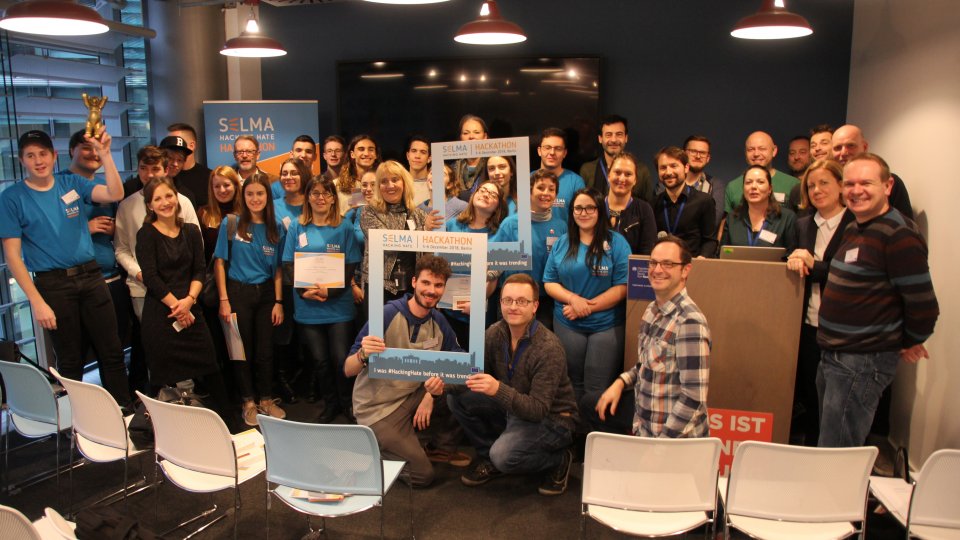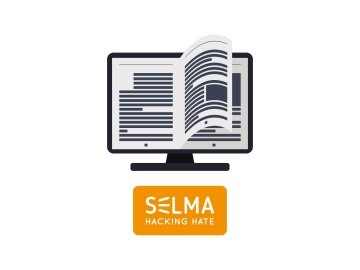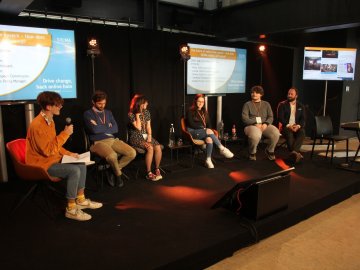Every month, we focus on a different dimension of the online hate speech phenomenon. These monthly focuses allow to foster a better understanding of how hate speech affects people, how we can respond to it and how we can effect positive change at a wider societal level.
In March, we began our series of monthly focuses with a closer look into why people spread hate online; in April, we explored the potential consequences of online hate speech; in May, we discussed how different stakeholders can promote tolerance and empathy online; in June, we talked about counter-narratives; and in July, we discovered the power of peer mentoring.
In August, we will focus on how hacking online hate calls for a concerted, multi-stakeholder effort involving all societal actors, with a closer look at the respective roles of policy makers and legislators, tech companies and social media platforms.
Hacking online hate: industry and policy efforts
Online hate has become a widespread societal issue – any attempt to fight it has to be part of a bigger scenario, of a broader and holistic approach involving all societal actors. Various initiatives, such as the No Hate Speech Movement from the Council of Europe, have shown how public and private stakeholders have come to collaborate at international and national levels to foster constructive and productive conversations and partnerships around complex issues such a hate speech, tolerance and mutual respect.
Online companies, especially those managing social media services and gaming platforms, can and should address hate speech in three ways:
- Putting in place effective and transparent regulation.
- Promoting counter-narratives through campaigns and more specific measures.
- Empowering users – in particular young people – to respond adequately to hate speech while creating contexts in which these users feel compelled to reflect on their own rights and responsibilities.
On the other hand, policy makers and legislators – both at national and EU levels – are developing legislation or updating existing laws to prevent and curb hate speech on online platforms, with recent high-level initiatives in that sense. For the most part, these measures consist in holding online companies accountable for the hateful content uploaded on their platforms and encourage and/or request them to adequately regulate and monitor it. Thanks to the EU Code of conduct on countering illegal hate speech online, online companies are now assessing 89 per cent of flagged content within 24 hours, up from 81 per cent in 2018.
Such efforts are commendable, but policy makers and industry stakeholders alike should seek to go further by proposing more ambitious and comprehensive measures which would properly recognise the potential of education, awareness and empowerment to prevent online hate speech on the longer term. That is where the SELMA approach comes into play.
SELMA in action
As online hate has become a societal concern, our August SELMA focus will look into how wider policy and industry stakeholders can and should get involved in a concerted effort to prevent, curb and counter such phenomenon. Throughout the month, a variety of activities – first focusing on industry stakeholders, later moving on to policy makers and governments – will take place, as follows:
- We will firstly introduce, in a concise and practical article, our “How to?” guide for people coming from an industry perspective, which presents a number of suggested pathways through the SELMA Toolkit to make the SELMA model work for online platforms, particularly social media services.
- Young people’s insight on the role of online companies in fighting hate speech on their platforms will be presented through a recap of a roundtable organised by SELMA partner The Diana Award between young people and Facebook representatives to discuss online hate and online platforms’ responsibilities in that regard.
- Finally, we will look into a number of political and legal measures taken by decision-makers at national, EU and international level, to regulate online hate speech and hold IT companies accountable.
In the meantime, stay updated and participate in the conversation on how to involve stakeholders such as industry and policy makers in hacking online hate; keep an eye on our Twitter hashtag #SELMA_eu, and follow us on Facebook.






